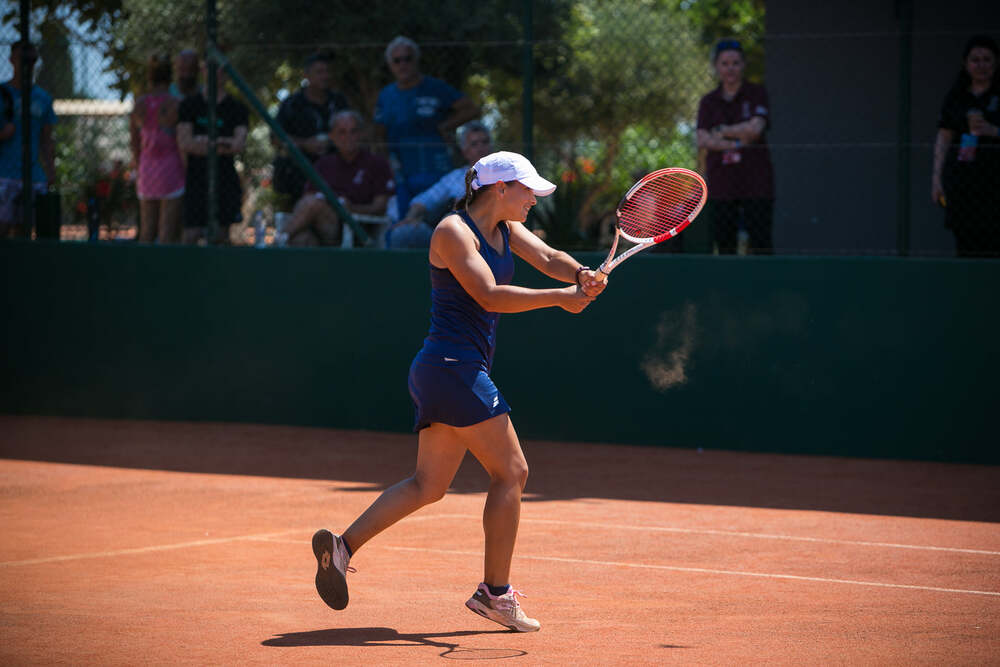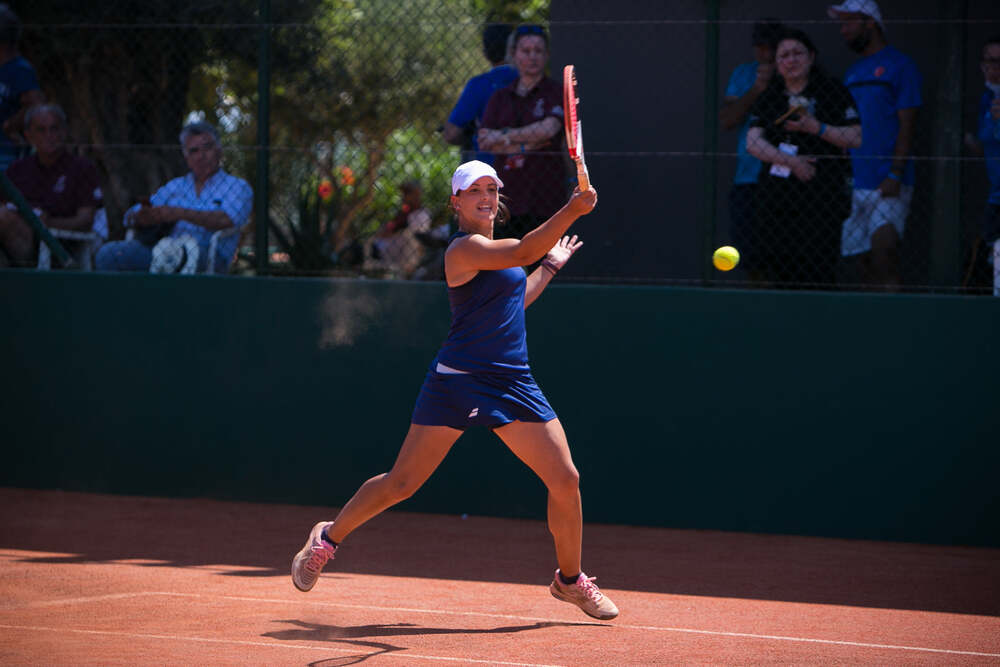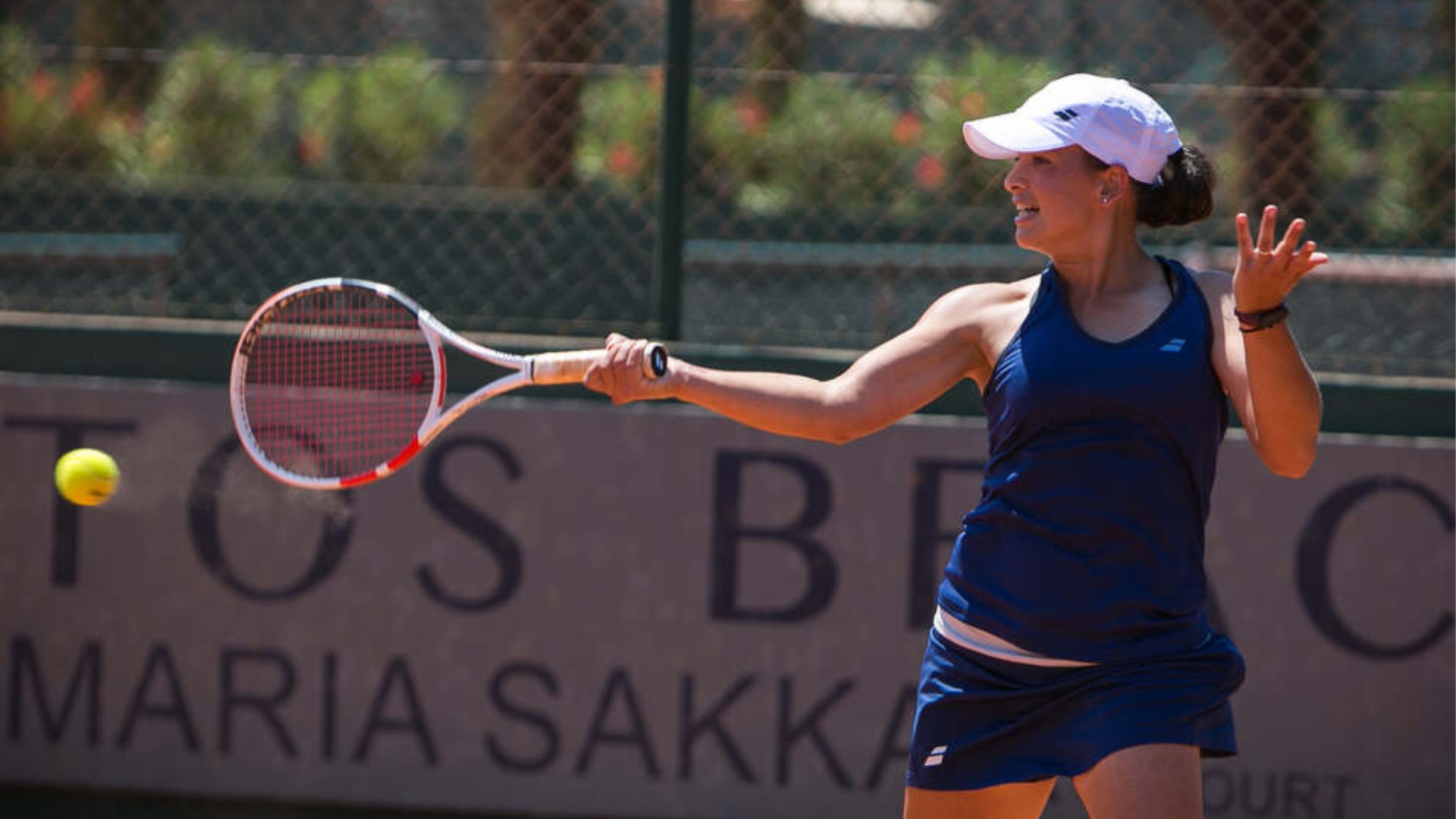By Bill Roumeliotis.
Greek tennis player, Vasiliki Kalogeropoulou, arrives in Victoria, Australia this week to play in the first ever international Persons who are Deaf and Hard of Hearing (DHoH) tournament at the Australian Open from January 27-29.
Ahead of her arrival, The Greek Herald spoke with Vasiliki about how she feels to be invited to the tournament and what her plans are for the future.

Vasiliki, first of all congratulations on your participation in the inaugural tournament. Tell us a few words about you and the event.
It is really a great honour for me to be invited to the Australian Open, one of the four Grand Slams of tennis. And of course, it is a great honour that they included Persons who are DHOH from around the world – something that is happening for the first time.
I am an athlete and a member of the national team for the Hellenic Deaf Tennis Federation. I am also a kindergarten teacher. I have been wearing hearing aids since the age of two.
I started playing tennis at the age of 15 and had my first participation in the 2009 Deaf Olympics in Taipei. From then until today I have participated in all the events of the World Tennis Federation such as the Olympiads, World and Pan-European Deaf Tennis Games. In these events, I took fifth place in two Olympiads, two Worlds and one European and third place in 2021 at the Pan-European games in Crete.
Tennis is a sport for the DHOH that is no different from the hearing, just that when we compete, we don’t wear our hearing aids. In tennis we play a lot with our eyes and rely on our senses, the feel of the ball on the racket. The rules are the same, with the only difference that instead of saying/shouting the score, the referee indicates it with signals.

Last May you won fifth place in the Deaf Olympiad held in Brazil, an important distinction. What is your next goal?
Indeed, it was a very important distinction in Brazil at the Deaf Olympiad. My next goal will now be the World Deaf Championships in Crete in September 2023.
What “sports” moment have you never forgotten?
There are many, but the one that is etched in my memory is 2015 in Nottingham playing against a very good athlete, who was in the top six of the world ranking. I was so ready that I believed in myself a lot. There were very nice phases in the match. I will not forget this feeling, of victory, that I won against a player that was much better than me in ranking. It made me understand that I could and can achieve much more. Nothing is a given and nothing is impossible.
Apart from sports, what else do you do?
Unfortunately, due to limited time and work, I don’t have time to deal with anything else, although I would like to.
What is your biggest dream?
To be healthy and to be able, in my next matches, to reach the final and win.
Finally, what message would you like to send to the Greek expatriates in Australia and to people with disabilities? Would you encourage them to get involved in sports?
What I have learned all these years is that with work, with effort, you can achieve the goals you set. Everything takes its time, as long as you want it. Never put it down. For people with disabilities, of course I would encourage them to engage in a sport that they like. Sport helps the person to socialise, gain self-confidence and learn to overcome the difficulties of life. It will be my pleasure to compete in Australia, in Melbourne in particular which has many Greeks.

